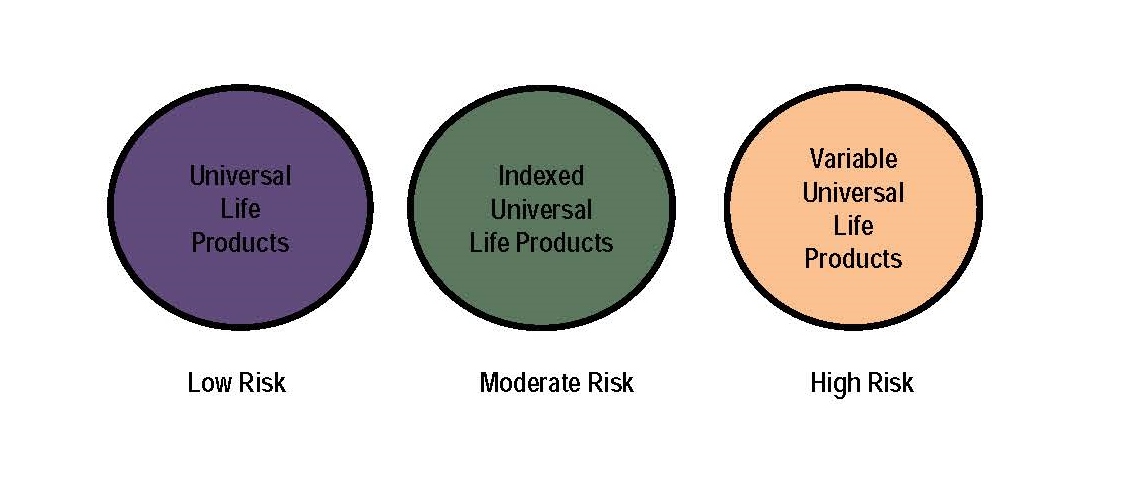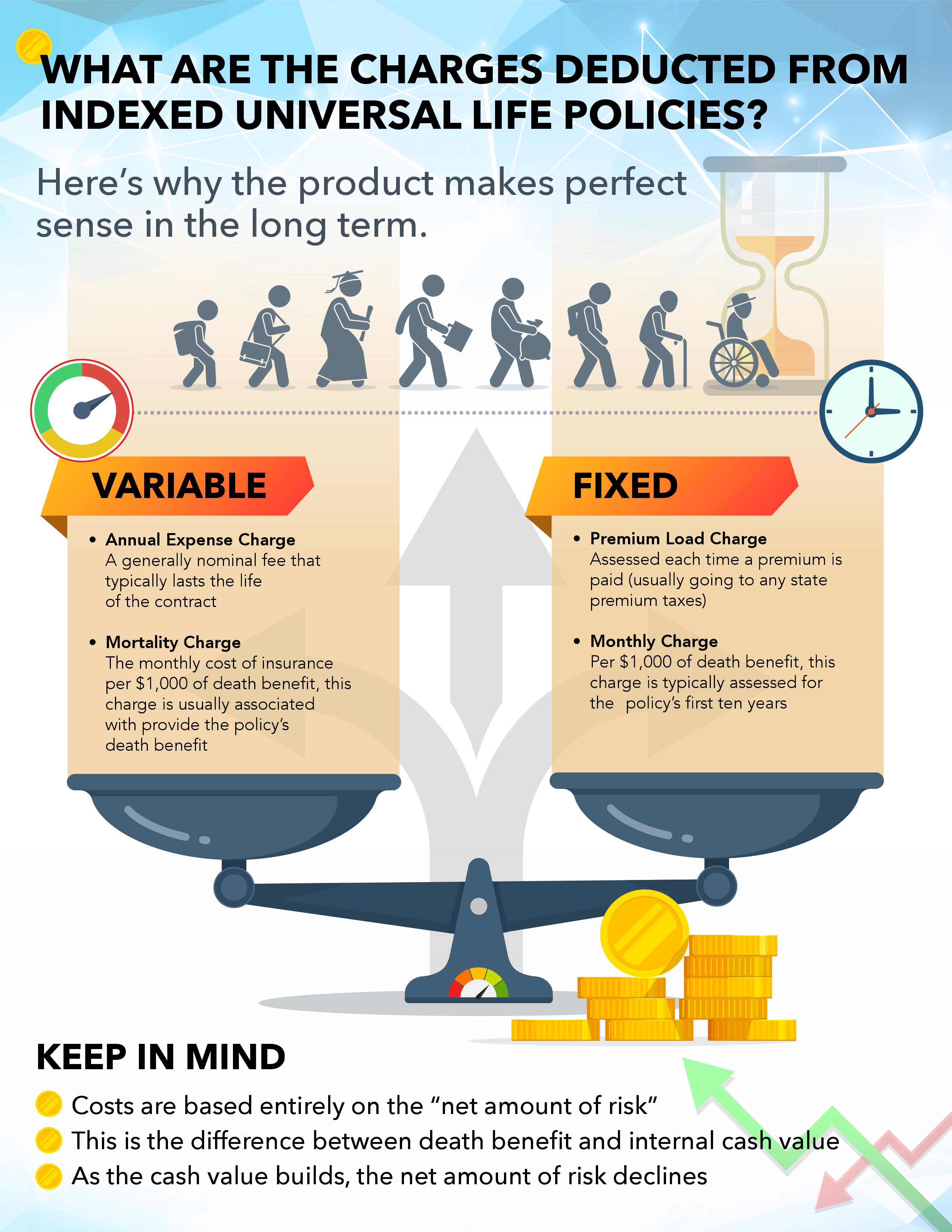All Categories
Featured
Table of Contents
Indexed Universal Life (IUL) insurance coverage is a type of permanent life insurance policy plan that incorporates the functions of conventional global life insurance policy with the capacity for money worth growth connected to the performance of a securities market index, such as the S&P 500 (IUL financial security). Like various other types of irreversible life insurance policy, IUL provides a fatality benefit that pays to the beneficiaries when the insured dies
Money worth buildup: A section of the premium payments goes right into a money value account, which gains interest with time. This cash money value can be accessed or obtained versus during the insurance policy holder's lifetime. Indexing choice: IUL policies provide the opportunity for cash money worth growth based on the efficiency of a stock exchange index.
Who offers Iul Policyholders?
Just like all life insurance products, there is also a set of risks that insurance holders should recognize before considering this kind of policy: Market threat: Among the main risks associated with IUL is market risk. Considering that the cash worth growth is connected to the efficiency of a stock exchange index, if the index executes badly, the cash worth might not grow as expected.

Adequate liquidity: Policyholders need to have a steady economic situation and fit with the superior settlement requirements of the IUL plan. IUL allows for versatile costs settlements within particular restrictions, yet it's important to keep the policy to guarantee it accomplishes its designated purposes. Rate of interest in life insurance protection: Individuals who require life insurance policy coverage and a passion in money worth development might discover IUL attractive.
Candidates for IUL need to have the ability to understand the technicians of the plan. IUL might not be the most effective choice for individuals with a high tolerance for market danger, those who focus on affordable investments, or those with even more immediate economic requirements. Consulting with a qualified economic advisor who can offer individualized support is necessary prior to considering an IUL plan.
All registrants will receive a schedule invitation and link to join the webinar by means of Zoom. Can't make it live? Register anyway and we'll send you a recording of the discussion the next day.
How can Iul For Retirement Income protect my family?
You can underpay or avoid premiums, plus you might be able to change your fatality benefit.
Versatile costs, and a survivor benefit that might also be versatile. Cash money worth, together with prospective development of that value with an equity index account. Indexed Universal Life plans. A choice to allocate component of the cash money value to a fixed rate of interest alternative. Minimum rates of interest guarantees ("floors"), but there may also be a cap on gains, normally around 8%-12%. Collected cash money value can be utilized to reduced or potentially cover costs without subtracting from your survivor benefit.
Policyholders can make a decision the portion assigned to the fixed and indexed accounts. The worth of the chosen index is taped at the start of the month and compared with the value at the end of the month. If the index enhances throughout the month, rate of interest is contributed to the cash money worth.
The 6% is increased by the cash value. The resulting interest is included to the cash value. Some plans compute the index acquires as the amount of the modifications through, while various other policies take an average of the daily gains for a month. No rate of interest is attributed to the money account if the index decreases rather than up.
Who provides the best Iul Protection Plan?
The rate is set by the insurer and can be anywhere from 25% to more than 100%. (The insurer can additionally transform the take part rate over the lifetime of the plan.) If the gain is 6%, the participation rate is 50%, and the existing money worth total is $10,000, $300 is included to the money worth (6% x 50% x $10,000 = $300).
There are a number of pros and cons to take into consideration prior to acquiring an IUL policy.: Just like conventional universal life insurance, the insurance holder can boost their premiums or lower them in times of hardship.: Amounts attributed to the cash value grow tax-deferred. The cash money worth can pay the insurance policy premiums, enabling the policyholder to reduce or quit making out-of-pocket costs payments.
Why should I have Iul Account Value?
Several IUL plans have a later maturity day than other kinds of global life policies, with some ending when the insured reaches age 121 or more. If the insured is still alive at that time, policies pay the death advantage (but not typically the cash value) and the profits may be taxable.

: Smaller sized plan face worths do not supply much benefit over regular UL insurance policy policies.: If the index decreases, no rate of interest is credited to the cash money worth. (Some policies provide a low assured price over a longer period.) Other investment cars utilize market indexes as a standard for performance.
With IUL, the goal is to make money from upward movements in the index.: Since the insurance provider just acquires alternatives in an index, you're not directly spent in stocks, so you don't profit when firms pay dividends to shareholders.: Insurers cost fees for managing your cash, which can drain pipes money worth.
Indexed Universal Life Policyholders

For the majority of people, no, IUL isn't far better than a 401(k) - IUL policy in regards to saving for retirement. Most IULs are best for high-net-worth individuals seeking means to minimize their gross income or those that have actually maxed out their various other retirement alternatives. For every person else, a 401(k) is a far better financial investment car since it does not lug the high fees and premiums of an IUL, plus there is no cap on the amount you may gain (unlike with an IUL plan)
While you might not lose any kind of cash in the account if the index decreases, you won't make rate of interest. If the marketplace turns favorable, the revenues on your IUL will certainly not be as high as a typical financial investment account. The high price of costs and charges makes IULs pricey and significantly less inexpensive than term life.
Indexed global life (IUL) insurance coverage supplies cash value plus a death advantage. The cash in the cash worth account can gain passion through tracking an equity index, and with some frequently assigned to a fixed-rate account. Indexed global life plans cap just how much money you can accumulate (commonly at less than 100%) and they are based on a potentially unpredictable equity index.
Why should I have High Cash Value Iul?
A 401(k) is a much better choice for that objective because it does not bring the high costs and costs of an IUL plan, plus there is no cap on the quantity you might earn when spent. A lot of IUL policies are best for high-net-worth individuals seeking to lower their taxed earnings. Investopedia does not provide tax, investment, or economic services and suggestions.
If you're considering acquiring an indexed universal life plan, first consult with a monetary expert that can discuss the subtleties and provide you an exact image of the real possibility of an IUL plan. Ensure you understand how the insurance company will calculate your passion price, incomes cap, and costs that could be assessed.
Table of Contents
Latest Posts
Meaning Of Universal Life Insurance
No Lapse Life Insurance
Equity Indexed Life
More
Latest Posts
Meaning Of Universal Life Insurance
No Lapse Life Insurance
Equity Indexed Life